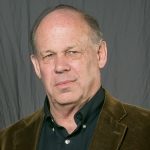The competitive challenges facing our industry can seem abstract. You can’t see the threat of deregulation or feel how the grid is changing – but failing to confront those challenges puts our jobs at risk. This November was a rare exception – our Nevada members had the opportunity to vote on a policy with real implications for our union. Question 3 asked voters a seemingly simple question: Should the Nevada state legislature create an open and competitive electricity market by the year 2023?
It sounds good – who is opposed to competition? But this measure would deregulate Nevada’s electricity market, dismantling the long-functioning utility model that provides reliable service to customers — and our jobs. Deregulation throws the market open without any oversight or controls on pricing, allowing companies to charge (and pay) whatever they’d like. It does away with important consumer protections, such as discounted rates for seniors and people with disabilities. It is a very real assault on our industry, our jobs and our values.
Our California members will remember how deregulation played out in the early 2000s: after Enron and other companies entered the market, prices spiked by 800% in just eight months. PG&E filed for bankruptcy, there were rolling blackouts, and ultimately it cost rate payers more than $45 billion to fix. It is a testament to our union that we were able to protect our members through that difficult time.
So how could Nevada fall into the same trap? After all, Question 3 has just two big donors: Sheldon Adelson, the billionaire owner of the Sands Corporation, and Rob Roy, the billionaire owner of SWITCH data centers. Deregulation would mean these large energy users could buy their power from cheaper, out-of-state providers, destroying middle class jobs in Nevada and raising everyone else’s rates in the process. And Question 3 would help them avoid millions of dollars in exit fees – fees that are intended to make sure the burden doesn’t fall on the rest of us.
These billionaires are definitely shrewd – but at the core of our union is power. Because our members understand the competitive challenges we face, they voted to give us the resources necessary to fight back against this threat and others. By activating our political connections and partnering with other IBEW locals and the Nevada AFL-CIO, we ran ads to inform the public about Question 3, put thousands of activists on the ground, and lined up advocates to speak out against it.
In the final weeks before election day, the tables started to turn. We shaved ten points off our opponents’ lead, but unfortunately, it wasn’t enough to defeat the measure. However, this isn’t the end of this fight. Since Question 3 is actually an amendment to the state Constitution, under Nevada law, it has to be approved by the voters twice in two consecutive election cycles. That means we will have another shot to knock it down two years from now.
Speaking broadly, Nevada’s flirtation with deregulation is emblematic of the changing nature of our industry. It is one of many threats – including a transforming power grid, the decline of nuclear power, and aggressive, anti-union employers – that are emerging all over the country.
I have no doubt that these threats will continue to emerge – but we are facing them together. Our strength comes from our unity. Power is at our core. And we will continue to be vigilant, and to fight back to protect our wages, our benefits, our members and their families.
–Tom Dalzell, IBEW 1245 Business Manager
